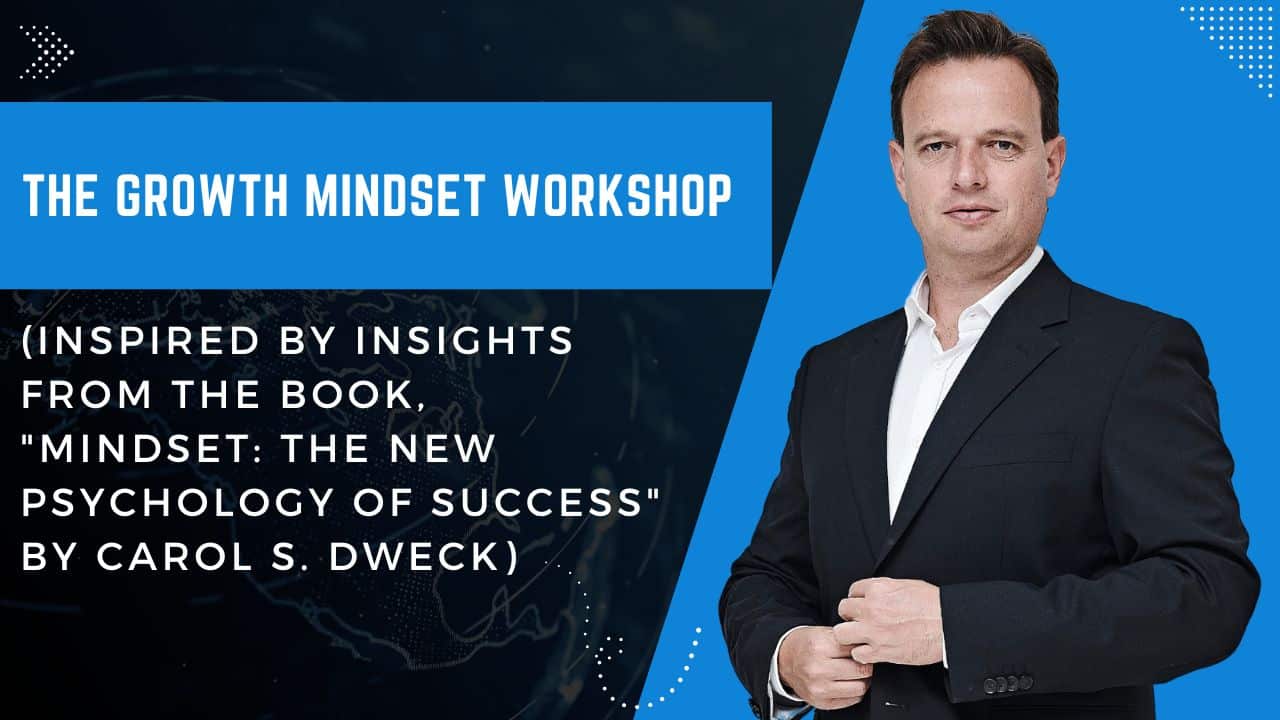I think a lot about the concept of having a growth mindset.
"Growth mindset" is the belief that abilities and intelligence can be developed through effort, learning, and perseverance rather than being fixed traits.
Having a growth mindset in teams is important because it fosters a collaborative environment where members are encouraged to take risks, learn from mistakes, and continuously improve.
It enhances team resilience, adaptability, and innovation, as members are more likely to embrace challenges and persist through difficulties.
A growth mindset also promotes open communication and constructive feedback, strengthening relationships and collective problem-solving.
Ultimately, teams with a growth mindset are more cohesive, productive, and better equipped to achieve long-term success.
So today I want to give you a short 2-hour workshop you can run with your team to encourage a growth mindset to flourish.
Let’s dive in.
"Mindset: The New Psychology of Success" by Carol S. Dweck

Carol S. Dweck's Mindset: The New Psychology of Success has achieved significant commercial success since its publication in 2006.
It is widely reported that Mindset has sold over two million copies worldwide.
This makes it one of the most influential and best-selling psychology books in recent decades.
This workshop is based on the key insights contained in the book and can be conducted in approximately 2 hours.
It’s designed to be interactive, reflective, and practical, helping participants understand the growth mindset concept and begin implementing it in their daily lives.
"Embracing a Growth Mindset"
Objective
Participants will understand the difference between a fixed and growth mindset, recognise their mindset tendencies, and learn strategies to cultivate a growth mindset in their personal and professional lives.
Step 1: Introduction to Mindset Concepts(30 minutes)
Objective: Educate participants on the fundamental differences between a fixed and growth mindset.
Activity: Mini-Lecture and Discussion
- Begin with a brief presentation explaining the concepts of fixed and growth mindsets as outlined by Carol Dweck.
- Define Fixed Mindset: The belief that abilities and intelligence are static and unchangeable.
- Define Growth Mindset: The belief that abilities and intelligence can be developed with effort, learning, and persistence.
- Use real-life examples and anecdotes from the book to illustrate both mindsets.
- Discussion Prompt: Ask participants to share their initial reactions to these concepts. Have they ever experienced moments where they exhibited either mindset?
Materials Needed: Presentation slides or whiteboard, markers, and handouts summarising critical points from Dweck's book.
Step 2: Self-Reflection and Mindset Identification (30 minutes)
Objective: Help participants identify their current mindset tendencies in different areas of their lives.
Activity: Mindset Self-Assessment
- Provide participants with a self-assessment questionnaire with scenarios or statements to identify where they may have a fixed or growth mindset.
- Example Statements:
- "I avoid challenges because I’m afraid of failing."
- "I believe my talents can be developed through hard work and feedback."
- "I tend to give up easily when faced with difficulties."
- After completing the questionnaire, have participants reflect on their results and identify areas where they exhibit a fixed mindset.
- Discussion Prompt: In pairs or small groups, have participants share one area where they recognise a fixed mindset and discuss how adopting a growth mindset could change their approach.
Materials Needed: Mindset self-assessment questionnaires, pens, and a space for group discussion.
Step 3: Action Planning and Mindset Shift Strategies (40 minutes)
Objective: Equip participants with strategies to shift from a fixed to a growth mindset and develop an action plan for ongoing mindset development.
Activity: Growth Mindset Action Plan
- Present strategies for cultivating a growth mindset, such as:
- Embrace challenges as opportunities to learn.
- Replace the word "failing" with "learning".
- Focus on effort and perseverance rather than innate talent.
- Seek feedback and learn from criticism.
- Ask participants to choose one area of their life (e.g., work, relationships, learning) where they want to apply a growth mindset.
- Have participants create a simple action plan outlining specific steps to apply growth mindset principles in this area.
- Example: "In my career, I will seek new challenges, view setbacks as learning opportunities, and ask for feedback to improve."
- Discussion Prompt: Allow participants to share their action plans with a partner for accountability and to gain additional insights.
Materials Needed: Action plan templates, pens, and a space for sharing.
Workshop Close (20 minutes)
- Summarise the key takeaways from the workshop.
- Encourage participants to keep their action plans visible as a reminder of their commitment to developing a growth mindset.
- Close your workshop so that everyone leaves feeling the workshop was an excellent use of their time. Here's the process I use.
- Optional: Provide resources or a reading list to explore the growth mindset concept further.
Materials Needed: Summary handouts and optional resource list.
Conclusion & Summary
Having a growth mindset is important because it fosters resilience, a love for learning, and a willingness to embrace challenges.
This mindset leads to continuous personal and professional development, helps overcome obstacles, and encourages adaptability in the face of change.
It also promotes a more positive and proactive approach to setbacks, viewing them as opportunities for growth rather than as failures.
See you next week.

